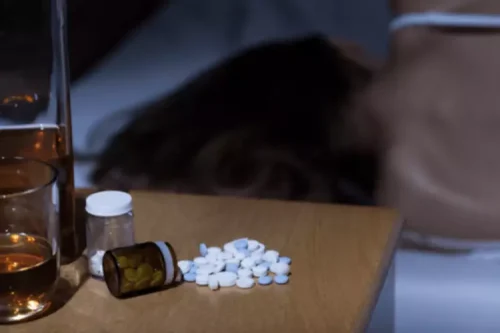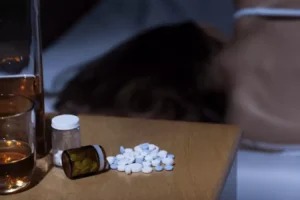
AA and other 12-Step groups can also connect you with a peer sponsor—someone you can depend on to support you through the recovery process. Your sponsor’s role is to guide you through the challenges of early sobriety. These groups also often host sober social events, which is important if your social life has always centered around drinking alcohol. You will typically receive several hours of both group and individual treatment during the day, and sometimes participates in additional activities, depending on the rehab.
Alcohol Misuse and Binge Drinking

The clinical presentation consists of a spectrum of signs and symptoms, including autonomic hyperactivity, tremulousness, restlessness, seizures, and potentially life-threatening alcohol withdrawal delirium. The symptoms most commonly begin between 6 to 24 hours after your last drink. Still, some symptoms — often more severe — can set in after 2 to 3 days.
Social Support and Treatment Programs
However, the specific details of coverage may vary depending on the insurance plan and the alcohol withdrawal individual’s specific situation. Additionally, some insurance plans may require prior authorization or limit the amount of treatment covered. Therefore, it’s important to understand your insurance coverage before beginning treatment.
- Many people find alcohol withdrawal so uncomfortable that they begin to drink again to get relief.
- For others, it can take months for the protracted withdrawal symptoms to diminish.
- It’s a good idea to see your doctor first if you want to quit or stop drinking alcohol.
- Many people decide to go into an inpatient treatment program when they are first trying to walk away from alcohol addiction.
- Within this system, stress induces the release of the hormone corticotrophin-releasing factor (CRF) from a brain area called the hypothalamus.
- Alcohol withdrawal can happen when someone suddenly stops or significantly decreases heavy drinking.
When should I see my doctor?
For those trying to detox from alcohol, it is vital to do so under the supervision of a doctor, as the withdrawal symptoms may be severe. The continued use of alcohol causes changes in the central nervous system and neurotransmitter production in the brain. When the supply of alcohol is suddenly stopped or decreased, withdrawal symptoms can develop. Supportive care – monitoring and frequent clinical reassessmentThis includes monitoring the vital signs, such as heart rate and blood pressure, as well as repeatedly checking glucose levels and alcohol concentration. If you drink alcohol, you may wonderhow long alcohol stays in your system. A healthy liver can process roughly one drink per hour, so for driving purposes, one drink will typically stay in your system for one hour.
They can start as soon as two hours after the last drink or as late as four days after quitting alcohol. They can range from moderate to severe, depending on other health conditions. It is possible to develop severe symptoms such as delirium tremens within the first 48 hours, according to the Alcohol Rehab Guide. Having a doctor monitor your symptoms can help you reduce your alcohol intake as safely as possible and lower the risk of more serious complications. The most effective way to prevent alcohol withdrawal syndrome is to avoid drinking or drinking only in moderation.
Alcohol use disorder

Her postgraduate and doctoral specialty is advanced population health nursing, specifically meeting the needs of medically complex children and students with disabilities in school and community settings. If you are concerned about any lingering withdrawal symptoms after 72 hours, reach out to your doctor for help. Alcohol withdrawal creates a range of undesirable mental and medical symptoms.
Alcohol Withdrawal Stages

Benzodiazepines can be prescribed by alcohol detox facilities to help prevent seizures. Without treatment, alcohol abuse can lead to serious long-term health consequences. Alcohol abuse is linked to chronic medical issues, including high blood pressure, certain cancers, and digestive problems. They vary from person to person depending on drinking behavior and concurrent mental health or physical issues. Suddenly =https://ecosoberhouse.com/ cutting back or stopping alcohol after heavy long-term drinking may trigger alcohol seizures.
- The first goal of treatment is to keep you comfortable by managing your symptoms.
- Withcontinued and excessive alcohol consumption, alcohol interferes with the brain’s natural functions, disrupting neurotransmitters that send messages to the CNS.
- Too much alcohol affects your speech, muscle coordination and vital centers of your brain.
- These findings have clear clinical relevance from a treatment perspective.

The syndrome typically presents as mild anxiety and gastrointestinal discomfort and can progress to severe manifestations, such as alcohol withdrawal delirium, which poses significant diagnostic and management challenges. More direct evidence supporting increased alcohol consumption as a consequence of repeated withdrawal experience comes from animal studies linking dependence models with self-administration procedures. Similar results have been reported in mice, with voluntary alcohol consumption assessed using a limited access schedule (Becker and Lopez 2004; Dhaher et al. 2008; Finn et al. 2007; Lopez and Substance abuse Becker 2005). Further, the amount of work mice (Lopez et al. 2008) and rats (Brown et al. 1998) were willing to expend in order to receive alcohol reinforcement was significantly increased following repeated withdrawal experience. This suggests that the reinforcing value of alcohol may be enhanced as a result of experiencing repeated opportunities to respond for access to alcohol in the context of withdrawal. Given that alcoholism is a chronic relapsing disease, many alcohol-dependent people invariably experience multiple bouts of heavy drinking interspersed with periods of abstinence (i.e., withdrawal) of varying duration.
Behavioral Treatment
This creates a state of temporary confusion and leads to dangerous changes in the way your brain regulates your circulation and breathing. The body’s vital signs such as your heart rate or blood pressure can change dramatically or unpredictably, creating a risk of heart attack, stroke or death. Withdrawal is the process of cutting out or cutting back on alcohol or drugs after a period of prolonged or excessive use.


 Sportwetten Sportwettenanbieter Usa
Sportwetten Sportwettenanbieter Usa
Leave a Comment... Discuss!